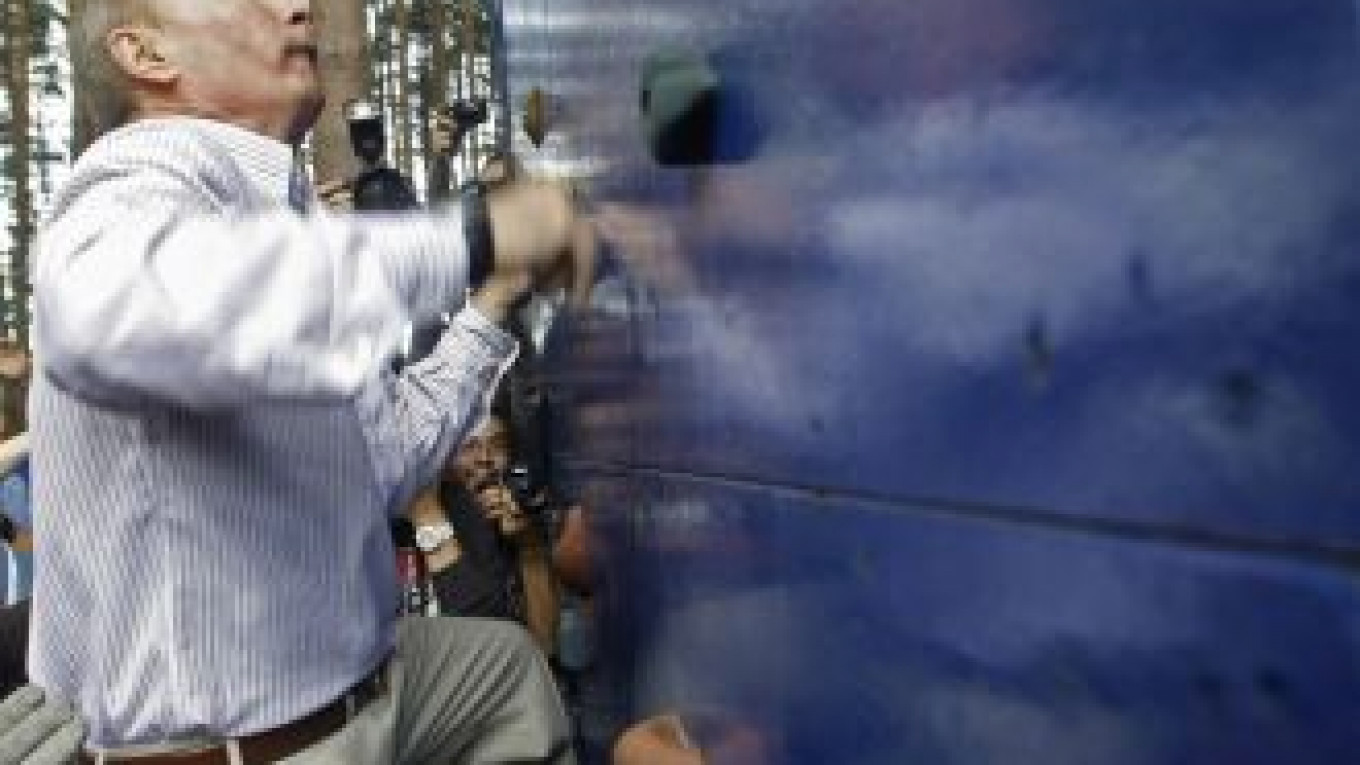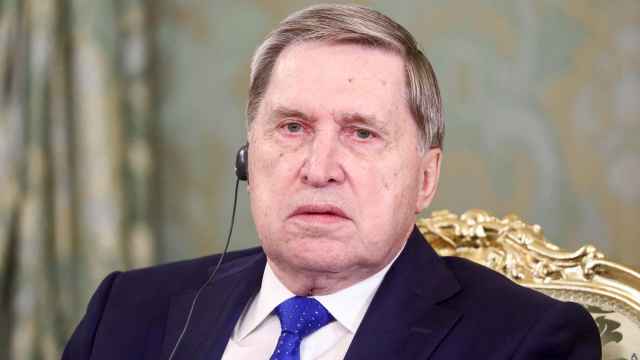Prime Minister Vladimir Putin on Monday scaled a wall, cautioned against the abuse of Twitter, and pledged to lose half a kilo by next summer.
Putin spoke at the state-run youth camp at the Tver region's Lake Seliger, which he visited on its second-to-last day of operation.
During a tour of the camp, Putin dropped by the fitness area, where he climbed halfway up a training wall for alpinists without using a safety harness, the government's web site .
He also spoke to young people there who complained about weight problems, and made his modest weight-loss pledge. He did not elaborate on his current weight.
It was Putin's second visit to the camp, located 370 kilometers northwest of Moscow. Established in 2005, the annual camp was initially a gathering for the pro-Putin youth group Nashi, although it has since broadened the program to include nonpolitical activities. Putin first visited in 2009.
President Dmitry Medvedev traveled to Seliger last year and was given a huge portrait of Putin as a gift from the campers. The president stayed away this year.
This year's event, co-staged by Nashi and the Federal Agency for Youth Affairs, which is headed by Nashi founder Vasily Yakemenko, had a budget of 200 million rubles ($7 million), partly funded by private sponsors, and hosted some 20,000 people from Russia and other countries over four weeks.
Yakemenko promised on Monday that next year's camp would be even better and operate for three months. Organizers plan to spend 12 times the current budget — 2.5 billion rubles — on construction alone, replacing the current tents with permanent housing that would be co-built with unidentified British designers, Interfax reported.
Putin voiced approval of Seliger's expansion plans during his Monday visit, which also saw him arm-wrestling a camper and examining a two-seater bike, which he promised to ride one day with Medvedev.
As is his practice, he dodged a question about which of them might run for the presidency next March. But he also spoke against totalitarianism, dismissing a camper's call for an "iron hand" in Russian politics, Interfax said.
He urged the authorities to be more active in serving the public even while using "modern transportation, Twitter and the Internet," the report said.
Putin invited bloggers who had criticized the camp to visit it next year.
Meanwhile, one such critic, Andrei Malgin, on Monday a video of Seliger campers holding a mock awards ceremony that targeted independent media outlets, including The Moscow Times, which shared a "Golden Condom" award with Moskovsky Komsomolets for publishing escort service ads.
Other recipients included Kommersant Vlast, GQ magazine and The Guardian, which was honored with a Golden Enema. The Moscow Times was not invited to the ceremony, but organizers pledged to e-mail the mock prizes to the winners.
A Message from The Moscow Times:
Dear readers,
We are facing unprecedented challenges. Russia's Prosecutor General's Office has designated The Moscow Times as an "undesirable" organization, criminalizing our work and putting our staff at risk of prosecution. This follows our earlier unjust labeling as a "foreign agent."
These actions are direct attempts to silence independent journalism in Russia. The authorities claim our work "discredits the decisions of the Russian leadership." We see things differently: we strive to provide accurate, unbiased reporting on Russia.
We, the journalists of The Moscow Times, refuse to be silenced. But to continue our work, we need your help.
Your support, no matter how small, makes a world of difference. If you can, please support us monthly starting from just $2. It's quick to set up, and every contribution makes a significant impact.
By supporting The Moscow Times, you're defending open, independent journalism in the face of repression. Thank you for standing with us.
Remind me later.






